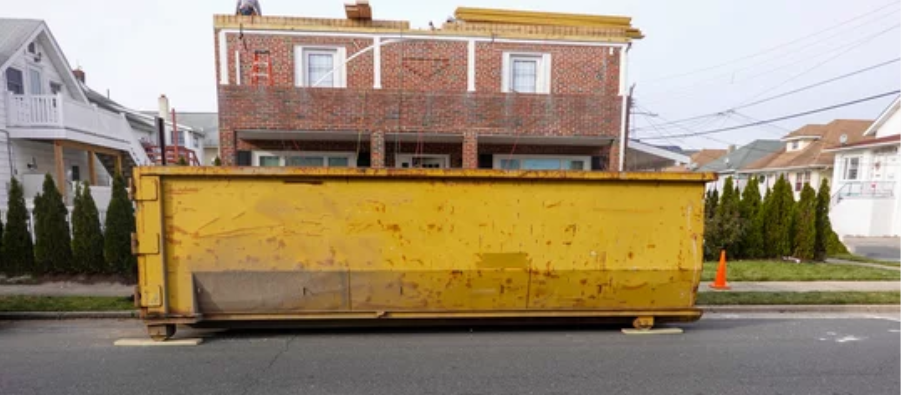Whether you’re tackling a home renovation, a landscaping overhaul, or simply clearing out the clutter, renting a dumpster is an essential step in managing waste efficiently. However, choosing the right dumpster for your project can be a bit tricky. With various sizes, types, and costs to consider, it’s important to make an informed decision. This guide will help you navigate the process of selecting the perfect dumpster for rent, ensuring your project runs smoothly from start to finish.
Understanding Dumpster Sizes
Dumpster sizes are typically measured in cubic yards, ranging from small 10-yard dumpsters to large 40-yard options. The size you need depends largely on the scope of your project.
10-Yard Dumpster
A 10-yard dumpster is ideal for smaller projects, such as minor home cleanouts or small remodeling jobs. It can hold about 3 pickup truck loads of debris, making it perfect for clearing out a garage, basement, or small room. If you’re renovating a bathroom or replacing a small section of a roof, this size should suffice.
20-Yard Dumpster
The 20-yard dumpster is one of the most popular sizes, as it offers a good balance between capacity and space. It’s suitable for medium-sized projects like kitchen renovations, multi-room cleanouts, or large landscaping jobs. This size can accommodate around 6 pickup truck loads of waste.
30-Yard Dumpster
A 30-yard dumpster is often used for larger projects, such as whole-home renovations or major landscaping efforts. It can hold approximately 9 pickup truck loads, making it ideal for construction sites or significant home cleanouts.
40-Yard Dumpster
The largest standard size, the 40-yard dumpster, is typically used for commercial projects, large construction sites, or major home demolitions. It can hold about 12 pickup truck loads of debris. This size is overkill for most residential projects but may be necessary for very large undertakings.
Choosing the Right Type of Dumpster
Dumpsters come in various types designed for different kinds of waste. Understanding the type of dumpster for rent that suits your needs will help you manage your project more efficiently.
Roll-Off Dumpsters
Roll-off dumpsters are the most common type and are delivered by truck. They’re ideal for most construction, renovation, and cleanout projects. The open-top design makes it easy to load large items, and they can handle a wide variety of materials, including construction debris, household waste, and yard waste.
Front-Load Dumpsters
Front-load dumpsters are typically used for ongoing waste management at businesses or apartment complexes. They’re smaller than roll-off dumpsters and are emptied regularly by a waste removal service. While they’re not ideal for one-time projects, they’re perfect for ongoing waste management needs.
Specialty Dumpsters
For projects involving specific types of waste, such as heavy materials like concrete or hazardous materials, specialty dumpsters are available. Concrete dumpsters, for example, are designed to handle the weight of dense materials, while hazardous waste dumpsters are equipped to safely manage chemicals, asbestos, or other dangerous substances.
Considering the Cost
The cost of renting a dumpster varies depending on several factors, including size, type, rental duration, and location. Understanding these cost components can help you budget effectively for your project.
Size and Type
As expected, larger dumpsters and specialty types typically cost more than smaller, standard dumpsters. A 10-yard roll-off dumpster may cost around $300, while a 40-yard option could be upwards of $700. Specialty dumpsters, such as those for hazardous waste, can be even more expensive due to the additional handling and disposal requirements.
Rental Duration
Most dumpster rentals are available for a period ranging from a few days to a few weeks. If your project runs longer than expected, you may incur additional charges for extended rental periods. Conversely, if you complete your project quickly, some companies may offer discounts for shorter rental periods.
Location
Where you’re located can also affect the cost of renting a dumpster. Urban areas with higher demand for dumpsters may have higher prices, while rural areas might be more affordable. Additionally, the distance from the rental company to your project site can impact delivery and pickup fees.
Weight Limits
Dumpsters have weight limits, and exceeding them can result in additional fees. Be mindful of the types of materials you’re disposing of, as heavier items like concrete, dirt, or roofing shingles can quickly add up. Some companies charge a flat rate, while others may bill you by the ton for excess weight.
Final Considerations
When choosing a dumpster for rent, it’s crucial to consider not just the size and type but also the specific needs of your project. Ask yourself the following questions:
- What type of waste will you be disposing of?
- How much waste do you anticipate generating?
- How long will you need the dumpster?
By answering these questions, you can narrow down your options and select the dumpster that best fits your project. Additionally, don’t hesitate to consult with the rental company—they can offer valuable insights and recommendations based on their experience.
Conclusion
Renting the right dumpster is key to keeping your project on track and your worksite clean. Whether you’re tackling a small home renovation or a large construction project, understanding the size, type, and cost of dumpsters for rent will ensure you choose the right one for your needs. By planning ahead and making informed decisions, you can save time, money, and hassle, leaving you free to focus on the task at hand.
Related posts
Categories
Advertisement


